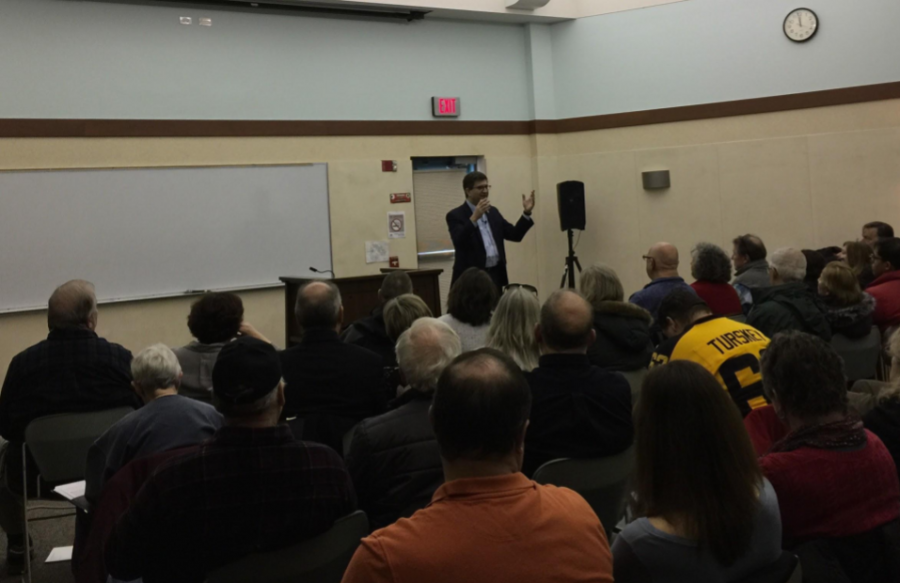Schneider Declines to Support Green New Deal
February 11, 2019
Representative Brad Schneider declined to support the Green New Deal at a Lake County town hall on Saturday. He stressed the need to address climate change, but expressed doubt with regards to the feasibility of the Deal.
A resolution calling for a Green New Deal was formally introduced in the House of Representatives by Rep. Alexandria Ocasio-Cortez (D – NY) on Feb. 7. Congressional resolutions do not have force of law and simply declare the sense of Congress – in this case that a Green New Deal is necessary.
House Resolution 109 focuses on the urgent need for a dramatic reduction in greenhouse gas emissions but also promotes job creation, investment in infrastructure and industry, securing a clean and healthy environment to future generations, and combating “historic oppression of indigenous peoples, communities of color… women, the elderly, the unhoused, people with disabilities, and youth.”
At a town hall held Saturday morning in Lindenhurst, Schneider characterized the Deal as vague and overly simplistic. “Details matter,” he said, and “if we set unrealistic goals, then we’re going to give an excuse for some people to back away and leave other people disappointed.”
The resolution indeed reads as more of a general policy proposal than a detailed action plan. It offers few specifics aside from its goal of cutting emissions to net-zero within ten years.
That ten year timeframe was a primary concern for Schneider, who also cited the technological and financial impediments that the Deal would encounter. He indicated his support for the “broad objectives” but criticized the resolution as overly ambitious and wide-reaching.
“If you try to do everything at once, it’s a recipe for disaster,” he said.
Schneider was not unequivocal in disputing the parts of the Green New Deal that focus on climate change. He stressed the “need to take bold, big steps” and expressed his desire to make climate change a topic of debate on the Ways and Means Committee (where he was selected to serve this year) and other committees of the House of Representatives.
Ultimately, however, when pressed for his proposed course of action, Schneider responded with a familiar Washington solution: more bureaucracy. “Within the next one or two Congresses, we’ll see a subcommittee on climate change in every committee,” he said.







